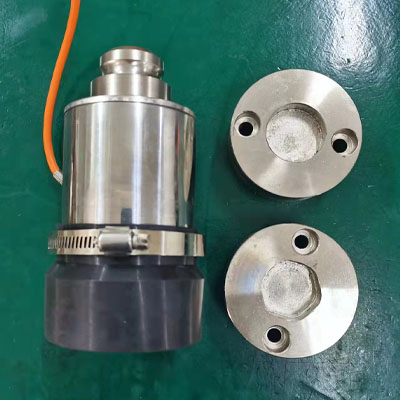
Introduction
Load cells are crucial components in weighing systems used across various industries, including manufacturing, retail, logistics, and research. These sensors convert the weight of an object into an electrical signal, allowing accurate weight measurement. Choosing the right load cell is essential for ensuring the efficiency and accuracy of your weighing systems.
In this blog, we will discuss the working principles of load cells, the types available, and how to select the right one for your specific application. This guide will help you optimize the performance of your weighing systems.
1.Working Principle of Load Cells
Load cells operate by converting force or weight into an electrical signal. The most common principle used is the strain gauge effect. When pressure is applied to the sensor, the strain gauges inside the cell change their resistance. The electronic circuit then measures these changes and converts them into weight data.
Understanding the working principle of load cells helps you choose the right type for your needs. For more detailed information on load cells, visit load measurement devices.
2. Types of Load Cells
There are several types of load cells, each suitable for specific applications. Below are some of the most common types:
2.1 Strain Gauge Load Cells
Strain gauge load cells are widely used in industrial and commercial weighing systems due to their high accuracy and stability. They are ideal for most standard weighing applications.
2.2 Hydraulic Load Cells
Hydraulic load cells measure weight by using liquid pressure. These load cells are typically used for heavy-duty applications and in harsh environments.
2.3 Capacitive Load Cells
Capacitive load cells are used for precise measurements, commonly found in laboratory and research applications. These load cells are sensitive and can detect very small weight variations.
2.4 Optical Load Cells
Optical load cells are resistant to interference and are ideal for extreme environments, such as high temperatures, humidity, or electromagnetic interference. They are used in industries like aerospace and defense.
3. How to Select the Right Load Cell?
When choosing a load cell, several factors need to be considered:
3.1 Load Capacity
Ensure that the load cell you select has a load capacity that matches or exceeds your requirements. Some applications require load cells with capacities ranging from a few grams to several tons.
3.2 Accuracy
For applications that demand high precision, such as in medical or scientific fields, choose a load cell with a high degree of accuracy.
3.3 Environmental Conditions
Consider the operating environment where the load cell will be used. If it will be exposed to extreme conditions, such as high humidity or corrosive materials, select a load cell with adequate protection.
3.4 Response Time and Stability
For dynamic weighing applications, such as production lines, fast response time and stability are crucial. Choose a load cell that can deliver accurate data in real time.
4. Applications of Load Cells
Load cells are used in various industries:
4.1 Industrial and Production Lines
Load cells are essential for automation in production lines, ensuring products meet weight standards and improving efficiency.
4.2 Commercial and Retail
In retail, electronic weighing systems, such as supermarket scales, are commonly used to accurately price and sell products.
4.3 Medical and Scientific Research
Load cells are used in medical devices and scientific research to precisely measure weights, ensuring accurate data for experiments.
4.4 Logistics and Transportation
Load cells help measure the weight of goods during transportation, ensuring compliance with weight regulations and improving logistical efficiency.
5. Conclusion
Selecting the right load cell is crucial for optimizing your weighing system’s performance. By understanding the different types of load cells and their applications, you can make an informed decision. For more information on load cells, visit electronic load cells, where we offer a wide range of load cells to meet your needs.






 售前客服
售前客服